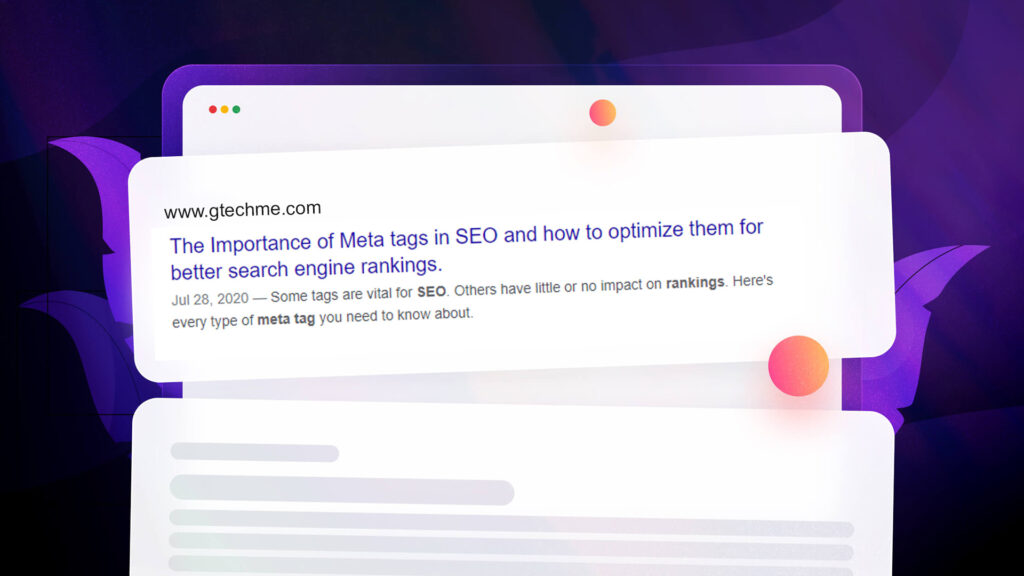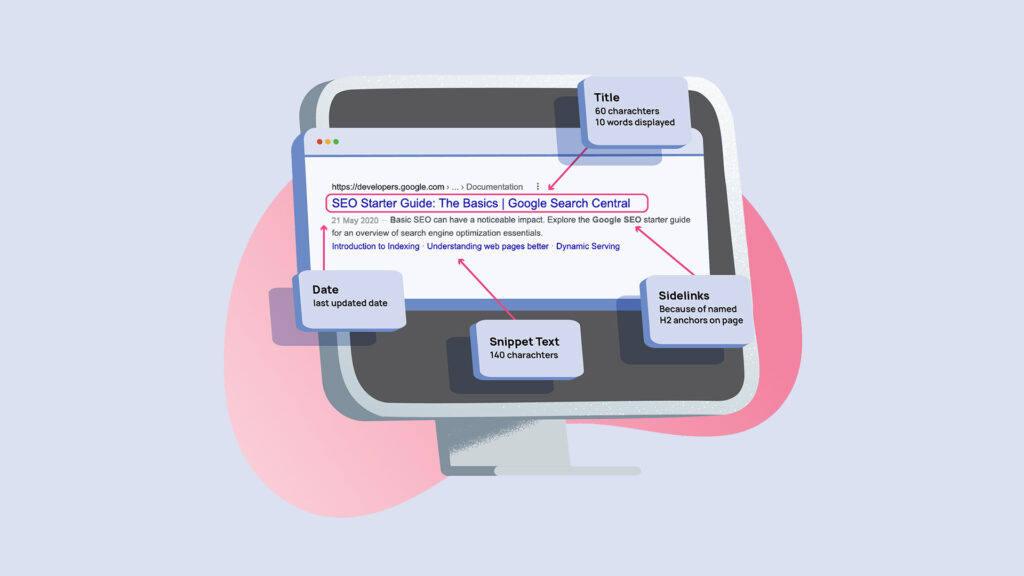For SEO, the importance of meta tags is paramount. They ensure that the website has a quality, solid foundation for optimization. To describe the page, tags are placed on the header using language that Google can understand. Few ignored SEO title length while others assumed priority. In some cases, things like links or content take priority over meta tags, as both of them are equally important. However ensuring that you optimize these tags correctly helps significantly with how Google understands your page.

Why are meta tags important for SEO?
When it comes to meta tags SEO, they are important. It is fair to say that they may not be as important as content or links, but for the overall optimisation process, they hold value. Better title tags may turn out to be the difference between the success and failure of your page. Having blank meta tags SEO may mean that Google is going to choose what works best for your page. The algorithm is not perfect, which may potentially create less of what you may want to see.
It is equally important to ensure that you have at least a physical page title and description for your page. Otherwise, you leave it to Google’s algorithm to make the decision.
Page title tags
The page title tag is a descriptive element of your page. Your title tag is the first thing that people see when they come across your site in Google search results. Hence, the importance of Meta tags is that it accurately reflects the page’s content. An example is that if you are writing blog content, you need to ensure that it reflects the content of the posts.
If you are developing a new site, there is no need to worry about understanding how search engines use meta tags. Once the site gets traffic, you would want to obtain traffic from Google searches. The essential documentation explains the following things about the best practices of page titles:
- Ensure that every page of your site has a physical title tag with the page title exactly specified.
- Google advises page titles should be brief and descriptive.; it does not want to see anything vague as a title for a home page. Google also suggests that it is better to avoid long texts.
- Google is not in favour of keyword stuffing; this does not mean that you can have descriptive items in the page title. But you need to include the main keywords, along with phrases, many times.
- Branding the page title is acceptable to practise for Google and they suggest their intention on how to use meta tags for SEO. You may include it at the beginning or towards the end of the text. Make it separate and unique from the rest of the text.
- Google also recommends that the page title match what is on the page; It may decide to use other text as part of the page title link if the title does not correspond to the main content.
Meta-description tags
Are meta tags important for SEO? It is not something that is used for grade purposes. Instead, it serves to draw in visitors and educate them about the page as a whole. It formulates a relevant and short summary of a specific web page. In its simplest form, it is a sales pitch for your website. This is meant to convince the users that the page is exactly what they are looking for.Google explains there is no limit to the length of the meta description, and this is done on a device-by-device basis. Considering this importance there is a need to understand how do search engines use meta tags to enhance the ranking of your website.

For writing meta descriptions, follow the best practices.
Although there seems to be little control over rankings, SEO is crucial when creating meta tags.. This could turn out to be the difference between a significant CTR from SERPs and a substandard CTR. For this reason, it is better to make sense of page titles or meta descriptions as the focus of your own SEO efforts when you optimize a page.
All the meta tags SEO need to be visible on the webpage. If they are not visible, Google will, in the vast majority of cases, ignore them.
Ensure that every meta description on the site is unique.
When these pages appear in SERPs, Google advises that having the same or similar meta descriptions on many web pages is useless. It is recommended that SEO professionals develop meta descriptions that are unique, and this goes on to describe the specific page accurately.
Aggregation pages also recommend that you utilise site-level descriptions and use page-level descriptions on all the other types of pages.
The meta description needs to include relevant information about the content.
Google suggests that you include relevant information within the meta description that reflects the actual page. For blog posts and news articles, the meta descriptions can list an author, publication information, and by-line information that otherwise would not be displayed. In addition, the product pages need to have information scattered all through the page that is helpful for the users who are included here.
Google suggests that the meta description needs to provide relevant information so that a user may decide to visit that particular page.
What are the other considerations of Google when it comes to meta descriptions
Starting off with Google search essential documentation is a great move, but it is not going to consider all information that Google may consider.
- There is a need to balance your time and think it would be a worthy move to go through hundreds of pages and write a description
- It is not about changing the descriptions and making them longer or shorter.
- Since meta descriptions are only visible to search engines along with other software the web masters completely forget about them.
- The descriptions are adjusted based on the query of users.

Meta tags are important for SEO purposes.
The importance of meta tags for SEO purposes is paramount. Some individuals think that when it comes to optimising web pages, meta tags assume less importance. But when it comes to achieving higher rankings, optimising meta tags may put you ahead of the curve.
Do not think of them as the be-all and end-all when it comes to your SEO efforts; rather, they turn out to be supplemental in nature. Just make sure that you upload meta tags as per requirement. An example about the importance of meta tags is when the page changes, Then you do not want a different page title and meta description in comparison to the content that is reflected on the page. The meta tags that you choose should not be substandard when it comes to quality.
The focus has to be on optimising these tags as they go from mediocre to great.
Related Post
Publications, Insights & News from GTECH





